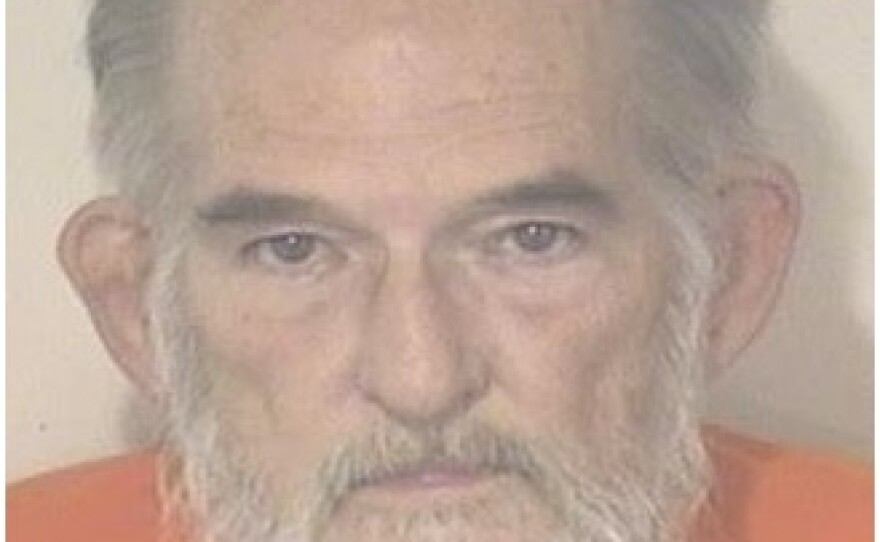In about six weeks, the Aspen community will hear details on what allegedly happened when Nancy Pfister died. A judge has scheduled the first major court hearings for three people charged with committing murder against Pfister. That was decided in court yesterday-- and some aspects of the case actually parallel the high profile Aurora shooting case on the Front Range.
Editor's note: you can read the newly released arrest warrants and charges here, here, and here.
The District Attorney’s office and media organizations have been pushing Judge Gail Nichols to unseal certain court documents in the case. Nichols says after reviewing the law, she had to release a small slice of that information. Yesterday she made the arrest warrants public, as well as the formal charges against the three defendants:
"That on or between February 24th, 2014 and February 26th, 2014, in the County of Pitkin, State of Colorado, KATHERINE MARIE CARPENTER (sic)… WILLIAM F STYLER III… NANCY CHRISTINE STYLER… with the intent to promote or facilitate the commission of the crime of murder in the first degree, unlawfully and feloniously agreed with…"
William and Nancy Styler were tenants of Pfister, who was found dead on the 26th in her home in West Buttermilk. Kathy Carpenter was a longtime friend and occasional assistant for Pfister. In her arrest warrant, it said she also used the last name Macias.
All three were in court yesterday, with five defense attorneys as well. In order to squeeze everyone in, the defendents spread out to the jury box and other parts of the courtroom. There were a few light moments, as some of the lawyers explained they were trying catch up with the 10 thousand pages of discovery in the case… and some still hadn’t read each others’ motions.
Since Judge Nichols did not release the other documents requested, the debate about whether to make those public continues. Defense attorneys want to have a closed hearing to argue it out. That way they can say detail "X" shouldn't be released-- without accidentally doing just that. Dan Recht is a criminal defense attorney in Denver. He says hearing those arguments gives him deja-vu, because they echo some of the issues going on with the Aurora shooting case on the Front Range. James Holmes is accused of shooting dozens of people in a movie theater in 2012.
"The request to have a closed hearing, the request to have certain things sealed, certain things unsealed, all of those procedural battles, have been waged. And are being waged also in the Holmes case."

Reporter (during the interview): "And is that a sign of a trend in tactics? Or some underlying similarity that the two have?"
Recht: "I would say the issue of closing hearings might have been propelled by the fact that Judge Samour seemingly has been open to that idea-- and more than open he has closed several hearings."
That’s in the Holmes case. Recht says closed hearings are unusual and don't happen very often. Another parallel is defense attorneys in the Pfister case say someone in law enforcement is leaking details about how she died. That's also true of the Holmes case in Arapahoe County. Again, Dan Recht.
"In fact it's certainty because a Fox News Reporter said that they had gotten certain information from someone within the Sheriff's department, but they wouldn't disclose their source. So there's been quite a bit of litigation over this in the Holmes case over this very issue."
As for the murder charges in Aspen, prosecutors will make their case in a June hearing about what allegedly happened when Pfister died. Several days have been set aside to hear the arguments. Because the charges are so significant, and the defendants are being held without bail, the hearing will have a special layer. It’s called proof evident, presumption great. Iris Eytan is also a criminal defense attorney in Denver.

"That actually forces the prosecution to kind of have a higher burden than they normally would have at a preliminary hearing, to prove the individuals are the right individuals that committed this offense.”
So the bar is higher, but at the same time, certain things are allowed that actually wouldn’t be ok in a trial. Like hearsay. So attorneys might mention something in June, that a juror would have to theoretically forget during a regular trial down the road.
And there could be more than one trial. During yesterday's hearing, Public Defender Tina Fang said a motion for what's called "severance" could be filed on Mr. Styler's behalf. Fang said that’s in anticipation of, quote, "highly antagonistic testimony" from the third defendant, Kathy Carpenter. Again, defense attorney Dan Recht.
"A severance would mean that the defendants would literally be tried separately, have separate jury trials... In many murder cases, the prosecution will try to get one of the defendants to be a prosecution witness, and in exchange, give them a sweet deal."
Also at at yesterday's hearing, defense attorneys explained the need for a subpoena, to get video footage from someone outside the case. They also questioned why the Colorado Bureau of Investigation has not yet shared certain testing information. Judge Nichols left the issue unresolved and said she would get to it as soon as possible.






